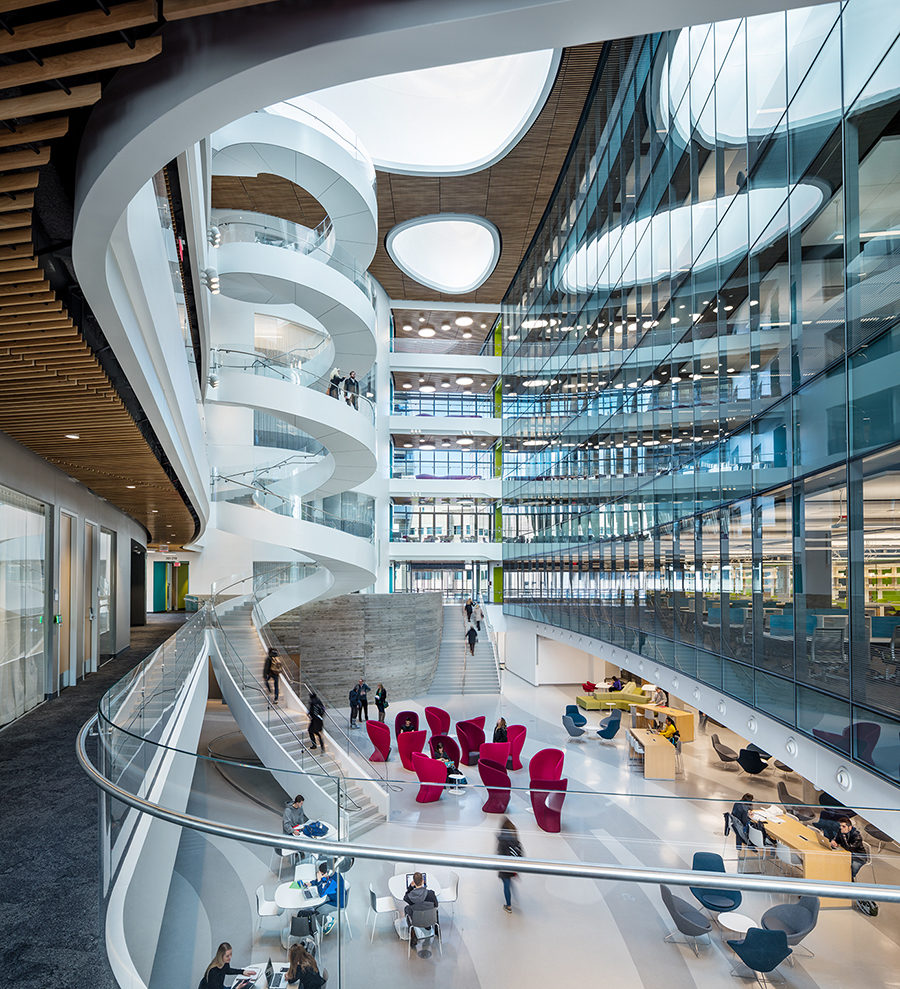Massachusetts was at the top of the US Green Building Council’s Top 10 LEED States list for 2017 for the second year in a row, with 130 projects certified LEED, totaling 29.34 million square feet. 2017 was also the 10-year anniversary of our state’s enacting Article 37, which requires all building projects over 50,000 square feet to adhere to LEED standards.

Article 37, a proud moment of legislation in Massachusetts’ history, certainly helped make it easier for projects like the Northeastern University Interdisciplinary Science and Engineering Complex to be built sustainably and consciously. The ISEC’s signature climate-responsive facades are one of the strategies that contribute to the building’s energy use stats and its status as tracking LEED Gold. The ISEC notably won an AIA New York COTE award in 2017.

Another Massachusetts-based project we’re proud of is the Rajen Kilachand Center for Integrated Life Sciences & Engineering at Boston University, an 170,000 SF research facility that is also tracking LEED Gold. The building, whose hallmark is research floors custom designed for flexibility, uses 72% less energy than an average equivalent building, which is an energy reduction equal to 574 homes.

Our third big university project that opened last year, the Tufts University Science and Engineering Complex, completes the trifecta by also tracking LEED Gold. The SEC, which is 177,000 square feet, sports an EUI of 112 kBtu/SF, and uses 77% less energy than an average equivalent building. The SEC makes ample use of our high energy/low energy lab zoning, and has a triple glazed exterior facade, among other sustainable strategies.

Our renovation at the Harvard Memorial Church, a 13,000 SF project that earned an AIA New England Honor Award, was certified LEED Gold in 2017. The project, which was originally started to upgrade the mechanical systems, added air conditioning systems and still resulted in a 66% reduction in energy use prior to renovation.

Perhaps the biggest recognition of our work to further sustainability in the built environment in 2017 was the Milken Institute School of Public Health at George Washington University, which was an AIA Top Ten Recipient and received an AIA/NY COTE Honor award. The Milken Institute was designed with a combination of sustainable strategies, including right-sized and high efficiency mechanical equipment and a high performance building envelope, to achieve a 64% improvement for total energy cost savings over the baseline and an Energy Use Index (EUI) of 67 kBtu/SF, which contributed to its LEED Platinum Certification.
We are proud to work in a landscape of architectural practices that will continue to push and inspire our own sustainable efforts, in Massachusetts and beyond.

